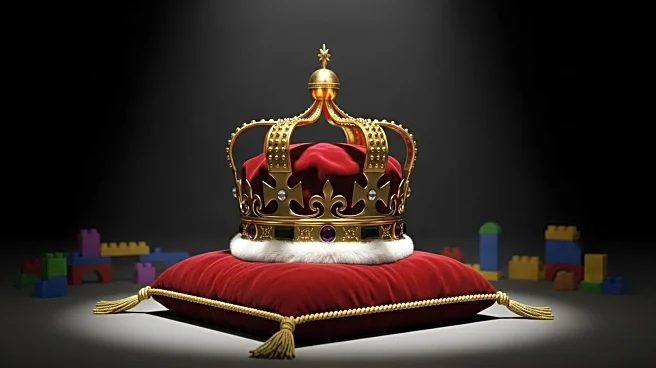What is the story about?
What's Happening?
King Charles III's monarchy is facing a significant challenge as new polling data reveals declining popularity among Gen Alpha parents. This generation, born between 2010 and 2024, is being raised by millennial parents who are increasingly divided on the future of the royal family. The decline in royal popularity has been ongoing since 2021, exacerbated by public controversies involving Prince Harry and Meghan Markle. The data suggests that British first-time parents are now more likely to support abolishing the monarchy than previous generations. This shift in sentiment poses a potential threat to the monarchy's future, as Gen Alpha may grow up in an environment less supportive of royal traditions.
Why It's Important?
The declining popularity of the monarchy among Gen Alpha parents is significant as it reflects broader societal changes in attitudes towards the royal family. This trend could have long-term implications for the monarchy's role in British society, potentially leading to increased calls for a democratically elected head of state. The shift in public opinion is driven by various factors, including historical controversies and recent scandals involving royal family members. As younger generations become more critical of the monarchy, the institution may face challenges in maintaining its relevance and support. The evolving attitudes of Gen Alpha parents highlight the need for the monarchy to adapt to changing societal values.
Beyond the Headlines
The decline in royal popularity among Gen Alpha parents raises questions about the future of the monarchy and its ability to connect with younger generations. The monarchy's historical significance and cultural impact may be challenged as public sentiment shifts. Ethical considerations regarding the monarchy's role in modern society and its ability to address contemporary issues are increasingly relevant. The potential for a generational shift in attitudes towards the monarchy underscores the importance of understanding the cultural and social dynamics influencing public opinion. As the monarchy navigates these challenges, it must consider strategies to engage with younger generations and address their concerns.















